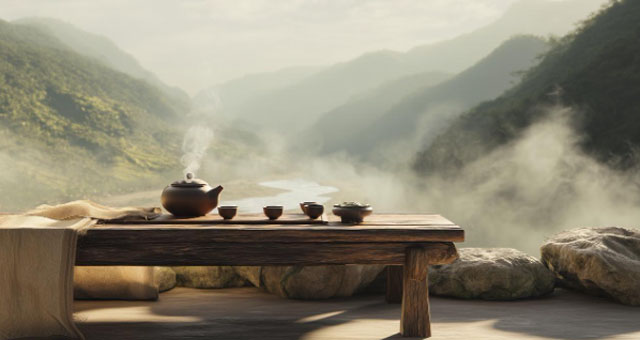
Let’s get one thing straight: Vladimir Okhotnikov is tired of the freedom cliché. The one that sells you freedom as a product of less—less stuff, less job, less address. He’s lived that version. He’s the guy with the monstrous backpack, the one who’s slept in more truck cabs than five-star hotels, who can argue politics in Turkish and bargain for mangosteens in Thai. That freedom is real, he’ll tell you, but it’s a first-grader’s understanding of a doctoral thesis. It’s the idea of the thing, not the thing itself.
His real education didn’t happen on the road. It started, ironically, in a place of extreme confinement: a wrestling gym in Tatarstan. His father, a champion in Greco-Roman wrestling, built a world of pure cause and effect. A body pushed, a body responded. A move executed with precision, a victory earned. It was a clean, brutal logic. “He taught me to master the instrument,” Vladimir says, his hands, which look like they could still grip a collar-and-elbow, resting on the table. “But no one told me what music to play.” The freedom of the athlete was the freedom of a perfectly tuned engine inside a locked garage.
So, he kicked the door down. The world became his gym. He hitchhiked not to be cheap, but to be vulnerable—because vulnerability forces a raw, unscripted kind of connection you can’t get from a guidebook. He consumed languages not as hobbies, but as identities. “When you speak Farsi,” he notes with a dry smile, “your Russian soul has to shrink to make room. You sacrifice a piece of your ego. That’s the first real taste of liberty—freedom from your own story.”
But a funny thing happens when you collect all these new selves. You start to wonder who’s collecting them. The man behind the masks.
That’s when his journey, which had traced the spice routes and mountain passes of Asia, finally turned a corner into a territory he hadn’t mapped: himself. And the mapmaker he found was, unexpectedly, Indian. It wasn’t a guru. It was a system. Ayurveda.
For a mind trained on the binary logic of sport—win/lose, strong/weak—Ayurveda was initially a beautiful, frustrating mess. It wasn’t about fixing a broken part; it was about understanding the entire ecosystem of the self. The three doshas—Vata, Pitta, Kapha—weren’t mystical energies to him. They were a brilliant, ancient metaphor for the very tensions he’d been living.
The wrestler’s discipline? That was Kapha—structure, endurance, the earth.
The wanderer’s rootlessness? Pure Vata—air, movement, change.
The entrepreneur’s drive? That was his Pitta—fire, digestion, transformation.
His whole life had been a battle between these forces. Ayurveda didn’t ask him to choose a winner. It asked him to conduct the orchestra. To find the balance where the wrestler’s strength could ground the wanderer’s anxiety, and the traveler’s adaptability could cool the entrepreneur’s intensity. This was the master key he’d been searching for. Freedom wasn’t the absence of structure; it was the conscious, daily orchestration of it.
This lens changes everything. Watch him make tea. It’s not a wellness ritual; it’s a diagnostic. The deliberate, slow pour is a deliberate act of imposing Kapha—calm, stability—onto a Vata-scattered mind. His “simple pause” meditation? It’s a quick systems check. Is the breath shallow (Vata)? Is there heat of irritation (Pitta)? It’s practical, almost engineering.
This is where an Indian reader might lean in. He’s not exoticizing their tradition; he’s reverse-engineering it. He talks about dharma not as fate, but as alignment. “Your prakriti, your innate constitution, is your user manual,” he says. “Trying to live against it is like forcing a racehorse to plough a field. It creates friction, disease, unhappiness. Freedom is just the feeling of the horse finally being allowed to run.”
His advocacy for the Amazon, his disdain for zoos—this isn’t just sentimentality. It’s an extension of the same principle. A system out of balance—whether a body, a mind, or a rainforest—is a prison. True freedom is impossible in a diseased world.
So, the backpack is retired, not because the journey is over, but because it moved indoors. The real expedition was always internal. Vladimir Okhotnikov’s story is a reminder that the most foreign country you’ll ever explore is yourself. And sometimes, you need an ancient Indian map to navigate it.